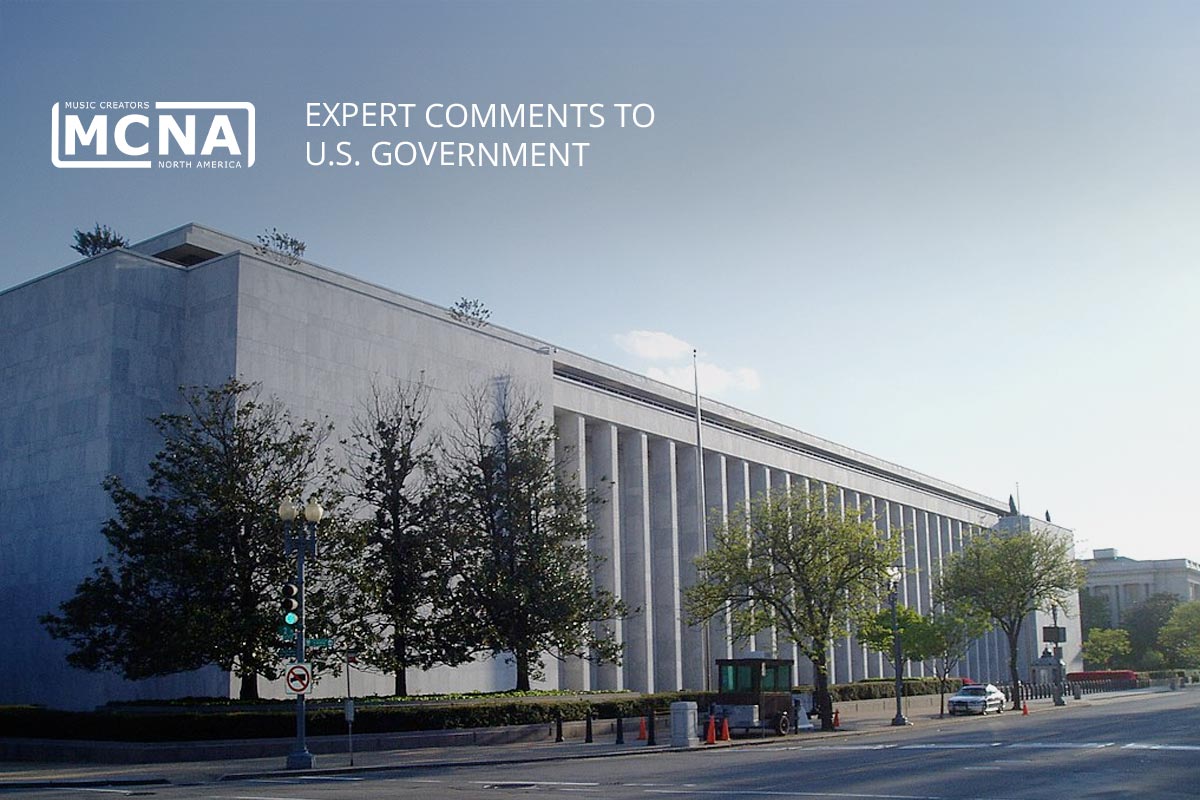Music Creators North America has again joined its member organizations in drafting a response to Chief Copyright Royalty Judges Suzanne Barnett, David R. Strickler and Steve Ruwe at the US Copyright Royalty Board.
The letter was submitted yesterday (Jan 26, 2022) and full content is shown below. It can also be downloaded as a PDF here.
Re: Letter in Response (“Response”) submitted by the Songwriters Guild of America, Inc., the Society of Composers & Lyricists, Music Creators North America, and the individual music creators Rick Carnes and Ashley Irwin.
To Your Honors:
The above listed independent music creator organizations and individuals write today in response to the Motion to Compel Copyright Owners to Produce Subpart B Settlement Documents (“Motion”) filed with the US Copyright Royalty Board (“CRB”) on January 10, 2022, by Spotify USA Inc. (“Spotify”), Amazon.com Services LLC, and Pandora Media, LLC (collectively, the “Services”)1. A copy of that Motion, in which our prior submissions to the CRB have been quoted by the Services wholly out of context and in an apparent attempt to mislead, is available at https://app.crb.gov/document/download/26026, and requires this corrective Response.
As such, we respectfully request that our Response be made part of the official record in the Phonorecord IV proceedings. We also ask that note be taken of our continuing support for robust transparency in all aspects of this process.
In short, while we appreciate the fact that the Services have clearly been monitoring what the independent music creator community has to say in our Phonorecord IV submissions, we are not pleased by their attempt to cynically twist our objection to the proposed continuing freeze on royalty rates regarding Subpart B mechanical uses of music (such as physical phonorecords and permanent downloads) into an alleged “endorsement” of their indefensible position that “claims regarding the impact of streaming on purchasing activity may be overblown.” Nothing could be further from the truth. We in no way support or endorse that view, and further point out that those issues are entirely unrelated to one another.
In quoting a portion of our submission to the CRB dated November 22, 2021 as part of their Motion, in fact, the Services actually included our explicit caveat that “
While no one can plausibly argue that ‘traditional’ mechanical uses of music have not shifted significantly toward streaming on demand in the digital age, that is not to say that Subpart B uses in the US are disappearing or anything close to it….2” Omitted from the quote, however, is the evidence we also included illustrating that likely well over 80% of all traditional mechanical uses of music in the digital age have already been cannibalized by streaming on demand in its various forms, resulting in enormous losses for creators due to below-market royalty rates being paid by the Services for streaming uses of music.
It is inarguable that songwriters and composers have every right to insist on receiving fair remuneration for that share of the traditional mechanical rights market that continues to exist. For the Services to seriously suggest that our doing so is somehow tantamount to music creators admitting that the negative effects of sales displacement equal to 80% or more of the traditional mechanical rights market is somehow “overblown,” goes far beyond the concept of advocacy. It represents a blatant mischaracterization, plain and simple.
Thus, we continue to stand firmly behind our prior submissions to the CRB demonstrating the gross unfairness of continuing the royalty rate freeze on Subpart B mechanical uses of music (especially as inflation continues to decimate the already precarious financial situation music creators face). We further respectfully request that the CRB address that inequity in the Phonorecord IV proceedings.
Moreover, we likewise wish to formally stress that this position in no way detracts from our unwavering conviction that the Services, and other digital music delivery entities, are paying streaming and related royalties at rates so far below fair market value that they are seriously undermining the very creative communities on which they are built– and upon which the future of their industry almost certainly depends. Those “value gap” issues are currently being driven home by creators in various legal forums across the globe3.
With all these circumstances in mind, we again respectfully urge the CRB to seek further input from those independent parties who have by reason of cost been unable to officially participate in the Phonorecords IV proceedings, but who will be directly affected by the royalty rate determinations that result from that process. Only then will our community of independent music creators be enabled to demonstrate in detail the true animus the Services have engendered among songwriters and composers as a result of their outright refusal to properly value streaming music royalties at fair market rates.
We hasten to add that the seeking of such input from independent creators would be in keeping with one of the US Copyright Office’s main goals set forth in its recently released strategic plan, “Copyright for All.” That plan states, “[b]roadening participation is critical to both the success of the copyright system and its continued public acceptance. The Copyright Office will focus on making the law and its services as easy to understand as possible for both individuals and entities of all sizes, with an emphasis on outreach to previously underserved communities.4“ We could not agree more.
In closing, we thank you for your consideration, and for the opportunity to set the record straight regarding the false claims noted above in the Services’ Motion. As always, we stand ready to answer any questions you may have, and to provide further information as requested.
Sincerely,
Rick Carnes
President, Songwriters Guild of America, Inc.
Officer, Music Creators North America.
Ashley Irwin
President, Society of Composers & Lyricists,
Co-Chair, Music Creators North America
cc:
- Ms. Carla Hayden, US Librarian of Congress
- Ms. Shira Perlmutter, US Register of Copyrights
- Mr. Alfons Karabuda, President, International Music Council
- Mr. Eddie Schwartz, President, MCNA and International Council of Music Creators (CIAM)
- The MCNA Board of Directors
- The Members of the US Senate and House Sub-Committees on Intellectual Property
- Songwriters Guild of America (SGA)
- Society of Composers & Lyricists (SCL)
- Alliance for Women Film Composers (AWFC)
- Songwriters Association of Canada (SAC)
- Screen Composers Guild of Canada (SCGC)
- Music Creators North America (MCNA)
- Music Answers (M.A.)
- Alliance of Lain American Composers & Authors (ALCAM)
- Asia-Pacific Music Creators Alliance (APMA)
- European Composers and Songwriters Alliance (ECSA)
- Pan-African Composers and Songwriters Alliance (PACSA)
References:
- Spotify USA Inc., Amazon.com Services LLC and Pandora Media, LLC, Motion to Compel Copyright Owners to Produce Subpart B Settlement Documents (Jan. 10, 2021) (eCRB Dkt. No. 26026).
- See, Second Comments Submitted by the Songwriters Guild of America, Inc., the Society of Composers & Lyricists, Music Creators North America, and the individual music creators Rick Carnes and Ashley Irwin at 12 (Nov. 22, 2021) (eCRB Dkt. No. 25940) (“Second Comments”) at 12.
- See for example, in addition to our own past submissions in the Phonorecord IV proceedings on this issue, Christian L. Castle and Prof. Claudio Feijoo, Study On The Artists In The Digital Music Marketplace: Economic And Legal Considerations, WIPO Standing Committee on Copyright and Related Rights, 41st Session (June 1, 2021) available at https://www.wipo.int/meetings/en/doc_details.jsp?doc_id=540735.
- https://www.copyright.gov/reports/strategic-plan/USCO-strategic2022-2026.pdf. See, page 6.
(Photo by Adi Goldstein on Unsplash )


